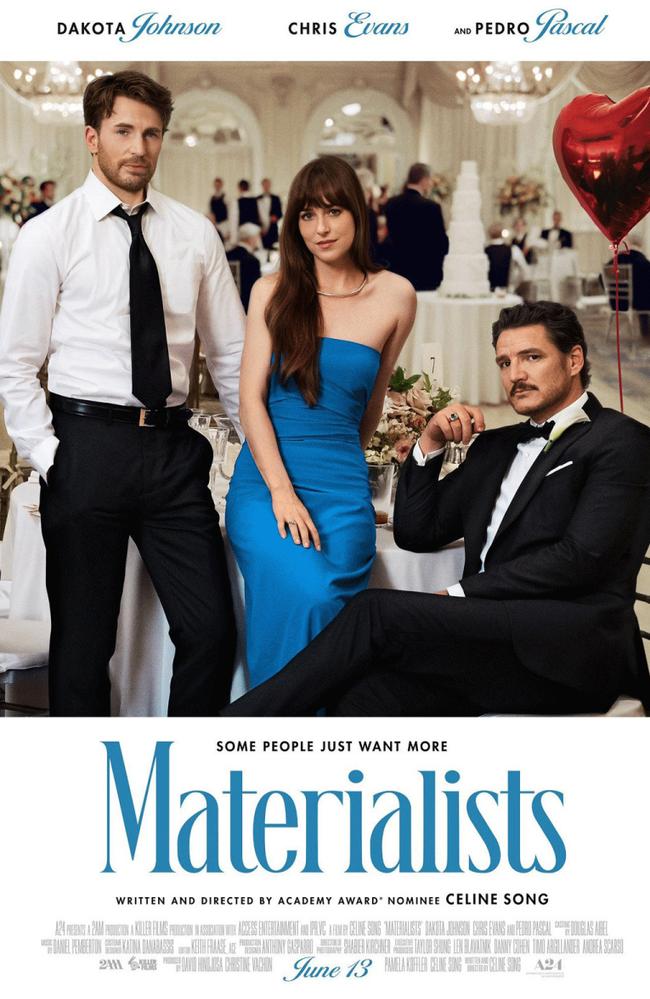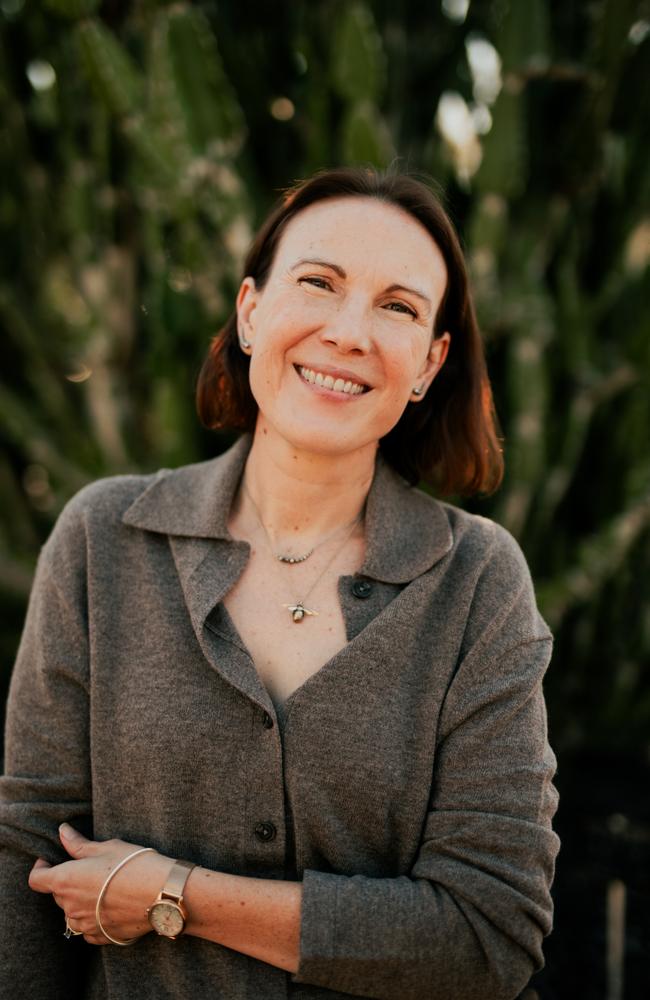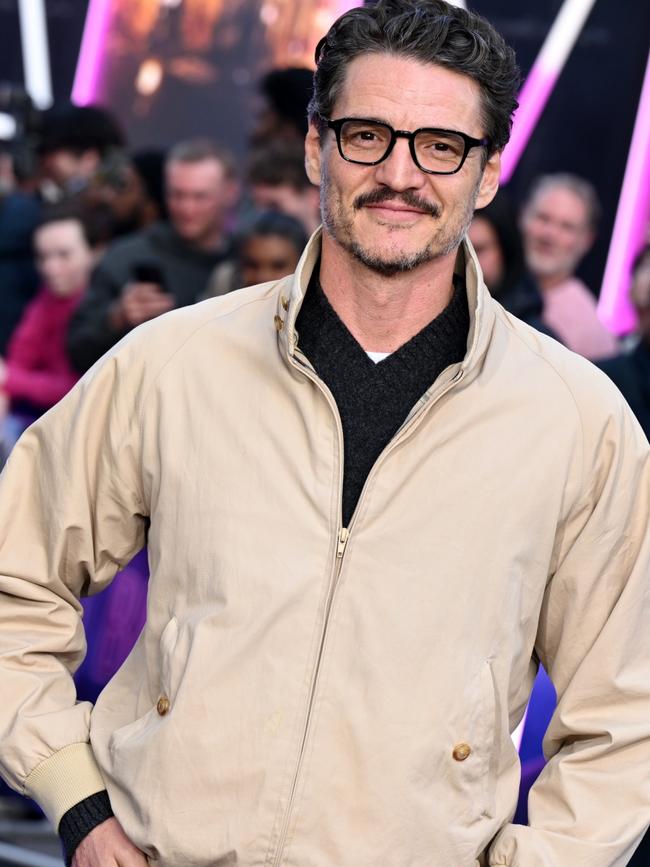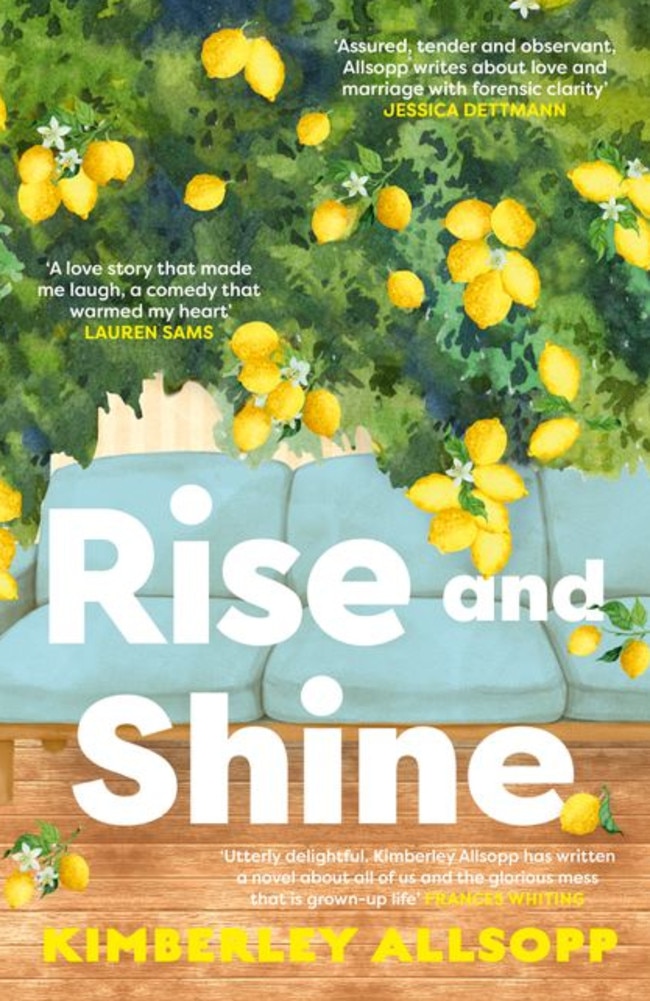Why a very Brisbane love story shows ‘settling’ doesn’t have to be a dirty word
A love story set in suburban Brisbane featuring AFL, backyard beers and a dog with two names is rewriting the script on a relationship behaviour many see as dirty.
Books
Don't miss out on the headlines from Books. Followed categories will be added to My News.
In The Materialists, Celine Strong’s rom-com follow-up to Award-nominated film Past Lives, Dakota Johnson plays a successful New York matchmaker torn between two men.
One is the impossible fantasy of a rich, successful, thoughtful and functioning (absolutely not a guaranteed trait in adults) Pedro Pascal.
The other is the impossible fantasy of one of your exes, who’s grown up and matured into the person they – and you – needed them to be, in the form of Chris Evans.
May we all be lucky enough to have this as the foremost problem in our life.

Of course, because Johnson’s character Lucy is a matchmaker, we’ll likely see the gaps between the truth of what people want (looks and financial security) and what they pretend they want (personality) and the tipping point, where people realise they are lonely and scared of dying alone – and that if someone could just be a human and nice to them, then that someone would be worth settling for. Settling, such a dirty word in our twenties, only to become comforting once you hit your mid-thirties.
Settling in a romantic sense. Settling for this current version of ourselves; the jobs we’re in, the breakfast we have each morning (a fry-up or pancakes on Sunday as a treat!), the place on the couch where we sit each night to watch television, and the dreams we have for our future selves.
This pull of ‘what if’ isn’t just fodder for romantic comedies and those moments when you’ve had too many gin and tonics at the end of a long week.

It’s the core of recent TV shows, like Four Seasons – with its all-star cast including the forever sharp and insightful Tina Fey and Steve Carrell – as well as the darker comedy/drama, Your Friends and Neighbours with Jon Hamm (another man, like Pedro Pascal, who just seems to improve with age), and the wonderful Amanda Peet. It’s the thread of sci-fi Academy Award-winning Everything Everywhere All At Once, and the perfectly taut and heartbreaking Past Lives mentioned above.
If you were still forced to churn out book reports like you did in school, you’d list it when talking about the recent novel Dream State by Eric Puchner or Miranda Cowley Heller’s The Paper Palace.

In my new novel, Rise and Shine, August and Noah find themselves at this exact moment in their timeline. Married for X years, and coming to realise what while their relationship is good, it’s also – if we’re being honest – a bit stale.
Their life together is good, but is it good enough? Will it sustain them for a lifetime? What if there was a better life for them, out there somewhere?
Rise and Shine is also a novel about community and music and baking and art and friendship and AFL and beers in Brisbane backyards. And a dog. And of course, it’s a book about hope, because that’s what all these storylines have to have in order to find their ways into our minds and hearts. Hope that if we haven’t made the right choices, there’s still time to do it.
And if that doesn’t work, hope that one day Pedro Pascal will appear and offer to buy us a drink.

Rise and Shine by Kimberley Allsopp will be published by HarperCollins on June 4. Share your ‘what if’ stories at The Sunday Book Club on Facebook.
Originally published as Why a very Brisbane love story shows ‘settling’ doesn’t have to be a dirty word


